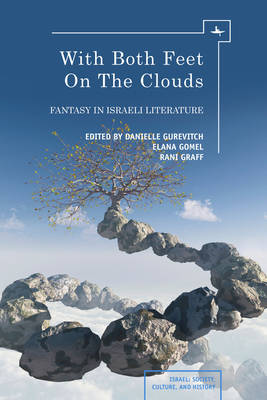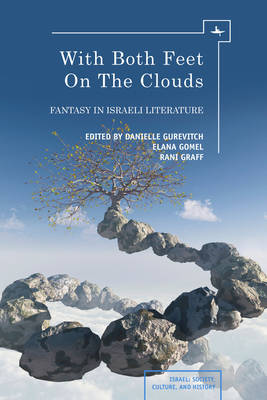
- Afhalen na 1 uur in een winkel met voorraad
- Gratis thuislevering in België vanaf € 30
- Ruim aanbod met 7 miljoen producten
- Afhalen na 1 uur in een winkel met voorraad
- Gratis thuislevering in België vanaf € 30
- Ruim aanbod met 7 miljoen producten
Zoeken
With Both Feet on the Clouds
Fantasy in Israeli Literature
€ 207,95
+ 415 punten
Omschrijving
Why do Israelis dislike fantasy? Put so bluntly, the question appears frivolous. But in fact, it goes to the deepest sources of Israeli historical identity and literary tradition. Uniquely among developed nations, Israel's origin is in a utopian novel, Theodor Herzl's Altneuland (1902), which predicted the future Jewish state. Jewish writing in the Diaspora has always tended toward the fantastic, the mystical, and the magical. And yet, from its very inception, Israeli literature has been stubbornly realistic. The present volume challenges this stance. Originally published in Hebrew in 2009, it is the first serious, wide-ranging, and theoretically sophisticated exploration of fantasy in Israeli literature and culture. Its contributors jointly attempt to contest the question posed at the beginning: why do Israelis, living in a country whose very existence is predicated on the fulfillment of a utopian dream, distrust fantasy?
Specificaties
Betrokkenen
- Uitgeverij:
Inhoud
- Aantal bladzijden:
- 312
- Taal:
- Engels
- Reeks:
Eigenschappen
- Productcode (EAN):
- 9781936235834
- Verschijningsdatum:
- 1/02/2013
- Uitvoering:
- Hardcover
- Formaat:
- Genaaid
- Afmetingen:
- 157 mm x 236 mm
- Gewicht:
- 612 g

Alleen bij Standaard Boekhandel
+ 415 punten op je klantenkaart van Standaard Boekhandel
Beoordelingen
We publiceren alleen reviews die voldoen aan de voorwaarden voor reviews. Bekijk onze voorwaarden voor reviews.










